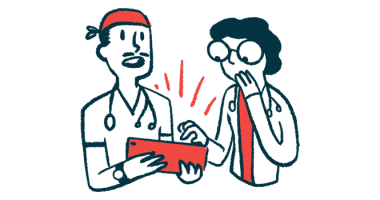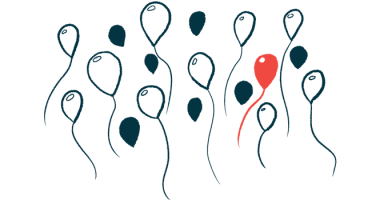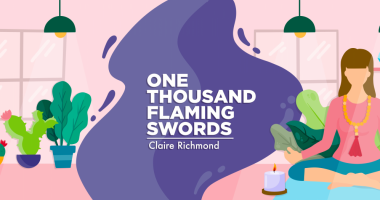Fighting for My Last Vice: My Morning (Decaf) Coffee

I love coffee, but it doesn’t play well with my acute hepatic porphyria (AHP).
Caffeine stimulates the central nervous system, and in recent years I’ve grown more sensitive to its effects. My AHP already causes me anxiety, irregular blood pressure, and insomnia, and as much as I may love it, a daily dose of fully caffeinated coffee doesn’t do me any favors.
I’ve sacrificed so much of what I valued for the sake of managing my AHP: pale ales, distance running, my exercise routine, even full-time work. So when I realized my morning cup of coffee was to blame for my racing heart rate, lightheadedness, nausea, and jitters, I was sad, frustrated, and determined to find a compromise that still allowed me to enjoy this one remaining vice.
But first, coffee
Undiagnosed and suffering in silent pain, I ran away from my troubles for the majority of my young adulthood. This meant that by my early 30s, I had lived in more than 20 different residences, and I knew few constants in my life. Coffee, however, had become a trusty morning sidekick.
I can remember snapshots of my life through a timeline of steaming mug-shaped memories: loading up Styrofoam cups with artificial sweetener in the basement of my parents’ small-town church in Iowa, enjoying a stint with iced coffee during the summer I interned in Manhattan, driving up for sweet and frothy carryout drinks on the way to Pensacola Beach in Florida, grabbing an overpriced latte after my chiropractor appointments in Beacon Hill in Boston, splashing real cream into my dark roast while writing my master’s thesis in Iowa City.
Unless my pain is hospital-level or I am plagued by nausea, my morning coffee has always been nonnegotiable. In fact, I use it as a reliable barometer for how bad my AHP is on a given day. If I can’t stomach a cup of coffee, I must really be hurting.
Kicking the habit
I’ve heard it’s hard to quit caffeine addiction; fortunately, my body did it for me after a prolonged hospital stay in 2017. Weeks of chronic nausea and gastroparesis left me unable to eat or drink much of anything, so when I was discharged and went home, I was ready to be back to the place where I could enjoy a quality cup of coffee again. But within minutes of my first sip, I could tell the drink was too much for my nervous system.
Jittery and frustrated, I faced a new dilemma in the management of my rare disease: How could I maintain the joy from my morning cup of coffee without affecting my health?
Decaf was the obvious answer.
Decoding decaf
Decaffeinated coffee gets a bad rap, and I’ll be the first to admit I cringed at this initial thought. But after a bit of research, I learned that not all decaf is created equal.
There are numerous options for extracting caffeine from coffee beans, including the use of chemical solvents, a carbon dioxide process, and the Swiss water process. When I made the switch to decaf, I opted for Swiss water process beans, which are often organic varieties. Luckily, in the last year or so, it has been easier to find options at cheaper price points and outside of specialty grocers. I can now find a bag of a favorite decaf roast at my neighborhood grocery store.
I drink coffee for your protection
With the switch to Swiss water processed decaf, I’ve been able to continue my love affair with coffee. In recent years, in accordance with the slowing down of my life, my morning mug has become a ritual, a time to pause and set an intention.
I’ve also stepped up my coffee game in a big way, thanks to using the money I formerly spent on craft beer and the wise influence of my fiancé, Michael, the tea drinker. I purchase locally roasted whole beans and grind them fresh every morning. Then, I fill my French press with 195-degree water and let it steep for three minutes. Before living with Michael, I was using water that was too hot and steeping it far too long!
I drink “half-caff” coffee most days. A combination of both regular and decaf beans helps wake me up in the morning, and the smaller amount of caffeine doesn’t aggravate my autonomic nervous system.
An AHP diagnosis can require drastic and devastating life changes. But I assure you that with the right decaf options, coffee doesn’t have to be added to your list of porphyria grievances.
***
Note: Porphyria News is strictly a news and information website about the disease. It does not provide medical advice, diagnosis, or treatment. This content is not intended to be a substitute for professional medical advice, diagnosis, or treatment. Always seek the advice of your physician or other qualified health provider with any questions you may have regarding a medical condition. Never disregard professional medical advice or delay in seeking it because of something you have read on this website. The opinions expressed in this column are not those of Porphyria News or its parent company, BioNews, and are intended to spark discussion about issues pertaining to porphyria.







Comments
Daniel
Hey, this was a cool article! If you love coffee that much there's a company that makes amazing decaf including some swiss water ones too... They are all natural, roasted to order and it's the only coffee company that doesn't serve fully caffeinated coffee at all! They seem right up your alley, check them out... Savorista is the name and they have quite a variety of you like different origins and so on.
Claire Richmond
Thanks for reading and for the recommendation, Daniel!